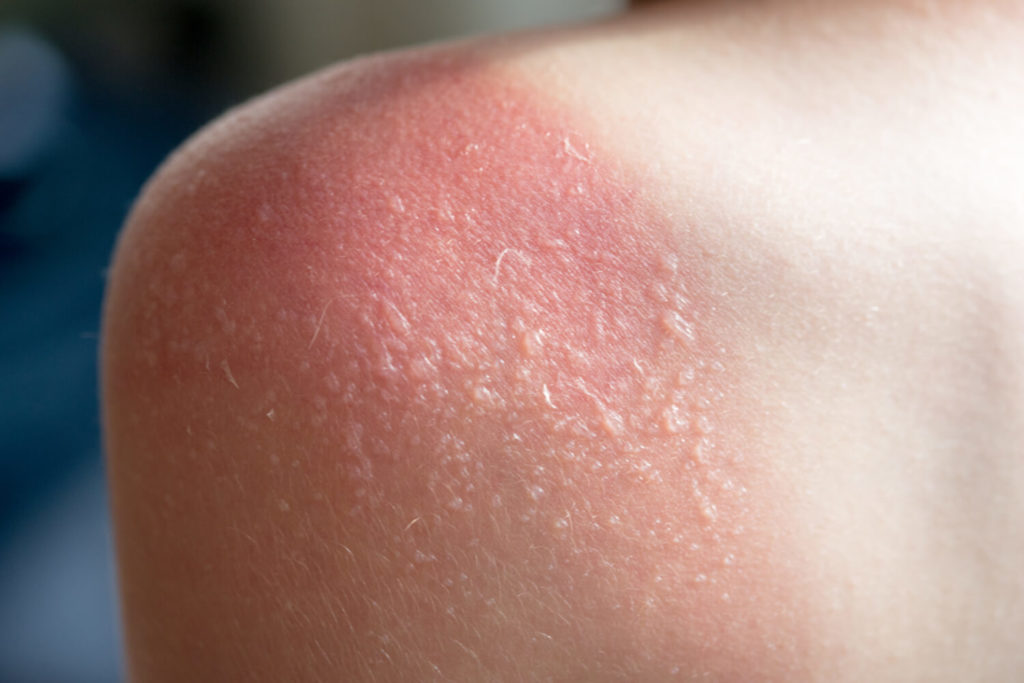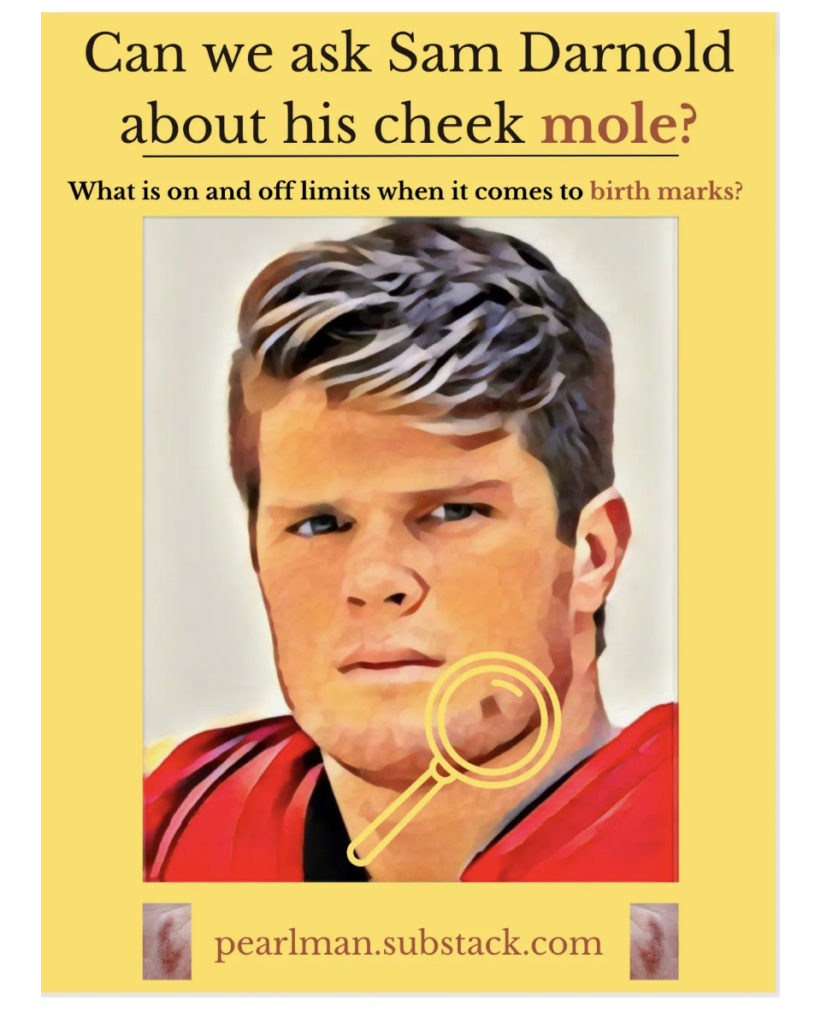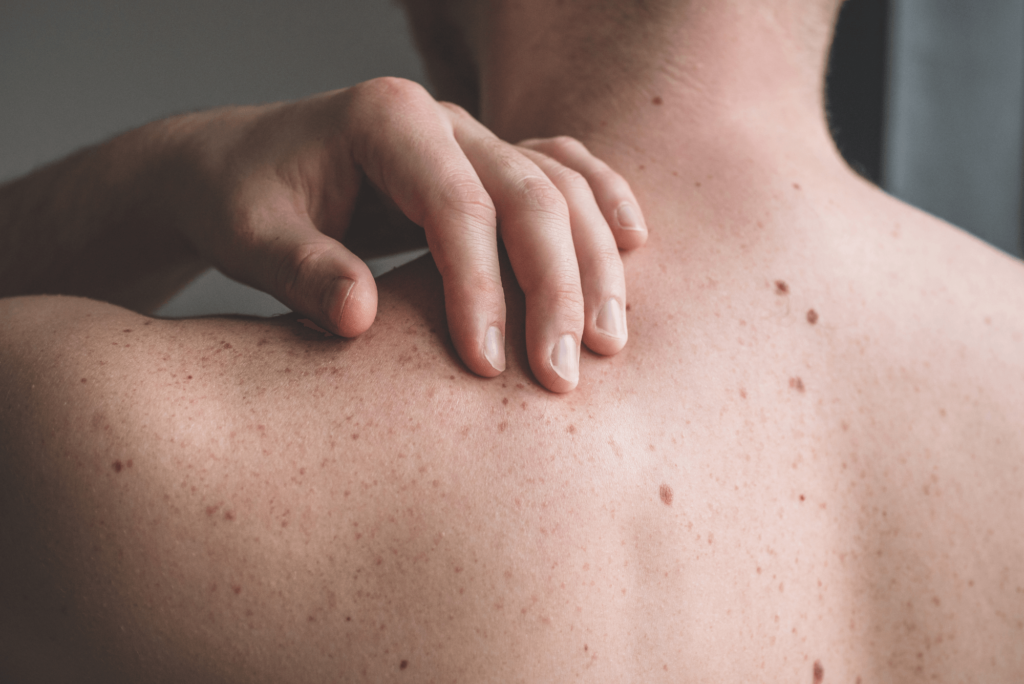Acne is the most common skin condition that affects all skin types. There are several types of acne, and while some of them can be treated with at-home acne treatment care and a solid skincare regimen, others may need further attention from a dermatologist. Learn more about the different types of acne, where they occur, and how to treat them.
What Causes Acne?
Several factors can cause acne to appear, however, hormone shifts are the primary cause. Think adolescence, menstruation, pregnancy, and menopause. These normal and predictable seasons of change often produce many side effects, including acne. Acne lesions may vary by type, number, and location, but nearly all acne is related to hormone shifts.
Blackheads and Whiteheads
What is Comedonal Acne?
The medical term for these common types of acne is comedones or comedonal acne. Blackheads are open pores or hair follicles while whiteheads are closed pores or follicles. These are the most common types of acne that most–if not all–teenagers face.
Where Do You Get Blackheads and Whiteheads?
Blackheads and whiteheads occur near sebaceous glands. Sebaceous glands are the oil producing glands. It makes sense then, that the most oily parts of the body, the face, neck and back, are at risk for comedonal acne.
How to Take Care of Blackheads and Whiteheads
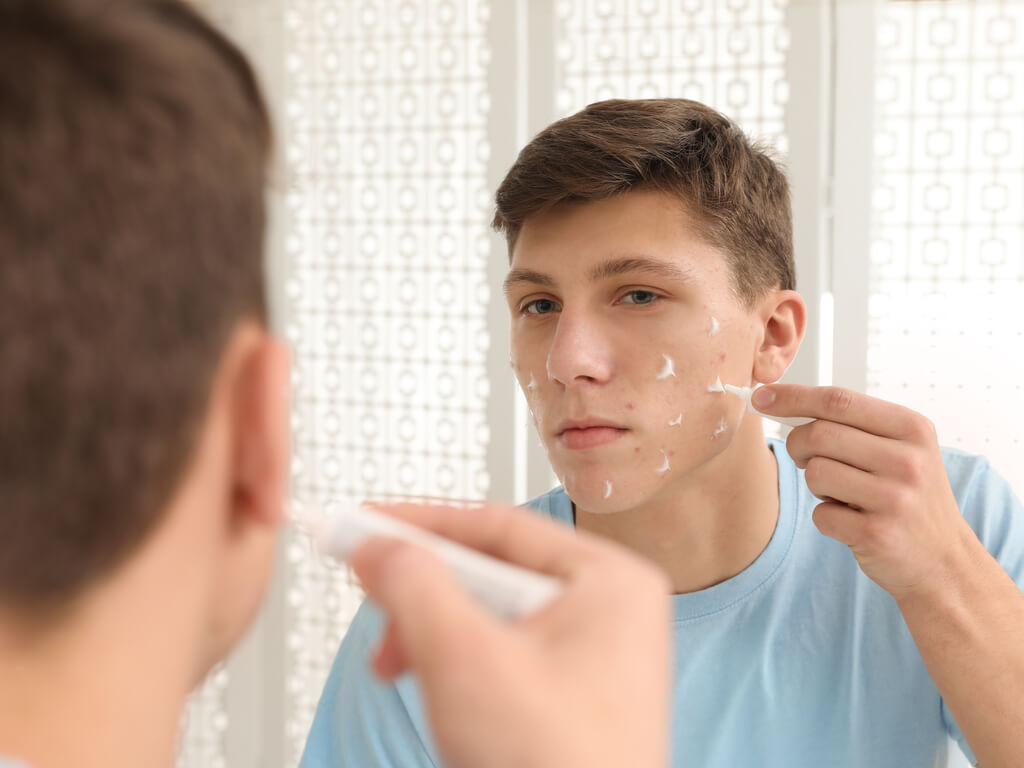
You should avoid picking, squeezing, or popping pimples, as it can cause unnecessary damage and scarring to your skin. Instead, I recommend using a cleanser twice a day that is designed for oily or combination skin. These cleansers contain ingredients that cut through and remove the oil/dirt/makeup from the skin, thereby reducing pore clogging on top of the skin. Washes containing salicylic acid, glycolic acid, and lactic acid are all helpful. Remember to wash then rinse. Wipes are not good for acne-prone skin.
Also, be aware that washes containing these acids may be too strong for some skin types. So, start slow, and try it just once per day until you notice how well your skin responds to this acne treatment.
Pustules
Pustules are similar to whiteheads except that they are also inflammatory. These lesions are red bumps with a white top. Pustules can be treated with OTC benzoyl peroxide washes or leave on treatments. However, use caution as benzoyl peroxide is quite drying to the skin and can also bleach the fabric. There are many prescription strength products that can treat pustules as well.
Cystic Acne
What Are Boils?
Boils are a more serious, progressed and painful version of a pustule. There are several types of boils that are classified depending on their make-up and the location where they occur on the skin.
Boils are a type of inflammatory acne that occurs when staph bacteria on the skin, slip under the skin and infect hair follicles. An early warning sign of a boil is folliculitis, where you may see lots of tiny whiteheads developing with redness and are tender to the touch.
A single boil will form around one hair follicle, and swell as the body tries to fight off the infection with more white blood cells. As the white blood cells die, the follicle will fill with pus and the boil will get bigger.
Teenagers often experience developing several small boils on their face while their hormones are changing, which is often called cystic acne.
When several follicles are infected under the skin, the boil is called a carbuncle. These can occur in skin folds of the body as well as the buttocks and often need oral antibiotics to treat.
How to Take Care of a Boil
Most boils are mild enough to be taken care of with a few simple steps. Applying a warm compress at home can encourage the infectious material to rise to the surface of the skin and drain. Washing with OTC benzoyl peroxide wash offers some anti-infective protection as well.
However, if a boil doesn’t improve, you should seek medical attention. You should seek immediate medical attention if you:
- Develop a fever
- Your lymph nodes begin to swell
- The boil develops severe pain
- The skin around the boil becomes red
- Red streaks appear around the boil
Nodules or Cysts
Where Does Nodular Acne Form?
Nodular or cystic acne is a result of deep inflammation in the skin, causing a large and/or painful nodule to form. This type of acne is not infectious, only inflamed. Nodular acne can occur anywhere on the skin, but most often it develops on the lower face, upper back and shoulders. This is most often seen in older teen males and adult females.
How to Treat Acne Nodules
Because nodular acne forms deep under the skin, it is much more difficult to treat with topical acne treatment. Most patients will need oral medication to effectively and consistently clear their nodular/cystic acne. Continue to wash twice a day and avoid oil containing skin products until your appointment.
Acne Scars
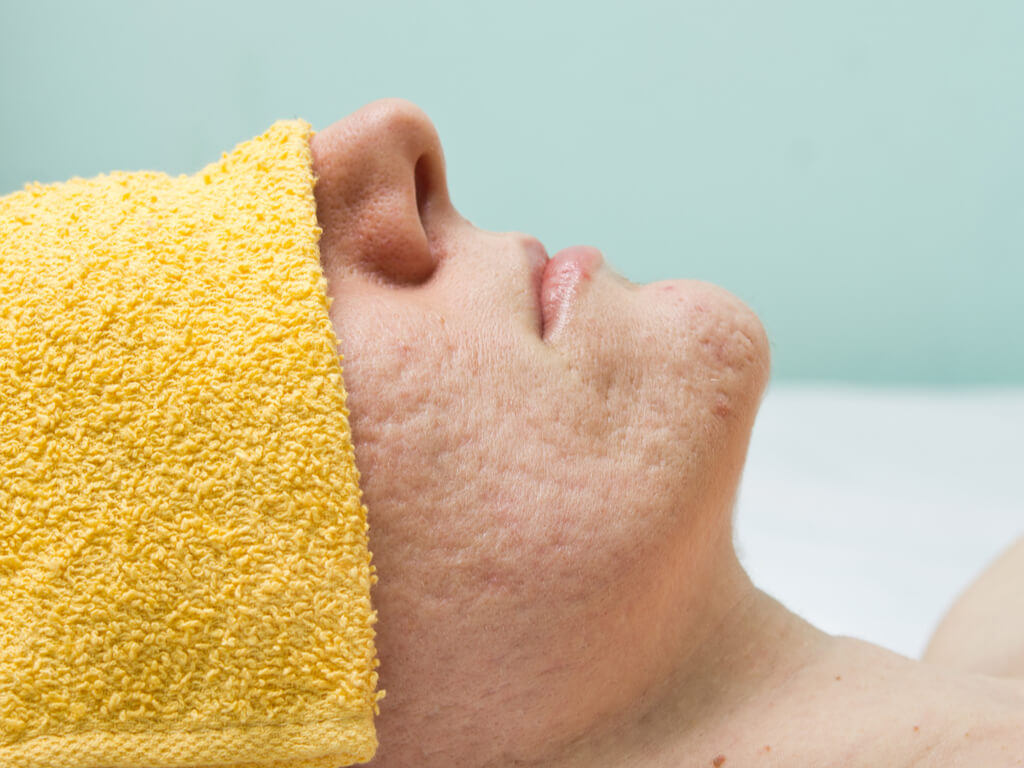
Eventually, acne will lessen and go away, but pimples can leave scars that take years to eliminate. The good news is that you can treat them! As for the different types of acne scars, there are two main categories:
- Depressed or Atrophic Acne Scars
- Raised or Hypertrophic Acne Scars
Depressed scars include boxcar scars, ice pick scars and rolling scars which are classified by the width and depth of the scar.
- Boxcar scars are long and rectangular scars with hard edges.
- Ice pick scars are rounded scars that penetrate the deep layers of the skin.
- Rolling scars have rounded edges, are very wide, and have a bumpy, rolling texture.
Raised scars are patches of hardened scar tissue raised above the surrounding skin due to high levels of collagen production during the healing process.
Both types of scarring can be addressed with topical treatments.
Make An Online Dermatology Appointment for Acne Treatment
If you’re experiencing acne for the first time or you’ve had it for years, make an appointment and get on the road to clear skin! Kristen Stirling, Nurse Practitioner, is an experienced dermatology provider with many years of experience treating acne and other skin conditions. Keep in mind that we can’t prescribe medications such as Accutane or birth control pills, as they are best handled by in-person practitioners.
Set up an appointment at your convenience, and we’ll talk to you then! Visit our Get Started page to make an appointment today.


